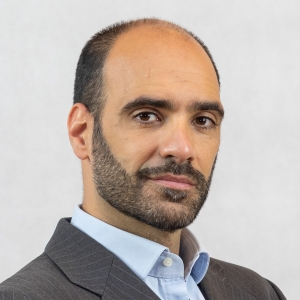Atlantico: A photo published in L'Incorrect magazine, which brings together the young presidents of Les Républicains (LR), Reconquest and Rassemblement National (RN). For them, the unification of the right is like a scarecrow. If we look at how they do it abroad, in Europe, what are the main lessons?
Rodrigo Ballester: Let's be clear from the start that this is first and foremost a media storm in a glass of water, a "counter-noise" consisting of a "headline" that is not very shocking in itself. On the other hand, the fundamental issue raised is indeed relevant, it is the crucial issue that is redefining the political landscape on the right, in Europe and in the Western world.
The first lesson to be drawn is that the "Union of the Right" already existed. In Spain, for example, José-María Aznar's People's Party has managed to unite virtually all political families, from the centre-right to the conservative right to the liberals. It has won two governments and an absolute majority. The Republican Party did the same in the United States for decades, and to some extent the French UMP. In Europe, at one time, so did the European People's Party, which brought together under one umbrella the different parties: the very centrist parties of the Benelux countries and the Orbanist Fidesz under one banner.
The second lesson is that this transversal and 'respectable' 'great right', as a result of the cultural and intellectual hegemony of the centre-left, inevitably moved towards the centre of the political spectrum, which imposed its own codes on the centre-left and made itself the arbiter of the left. As a result, much of the conservative right was wiped off the political and media map and no longer recognised themselves in these parties, whose voters appeared more right-wing than their elected representatives.
The third lesson is that this erased right is now returning, after having fuelled much frustration and lost some of its complexes. It seems much less intimidated by the ideological framework of "self-righteousness" that has silenced it for decades, and ready to fight on the field of culture and ideas, a field it abandoned, and which led straight to hysteria and woke sectarianism.
Lastly, let us not forget that this return of the traditional right has been made possible in part by the rise of Central and Eastern Europe, former communist countries where the left is not hegemonic and whose societies are more conservative societies.
Atlantico: Which right-wing type is currently leading and driving these coalitions? Has that always been the case?
Rodrigo Ballester:
These are all issues on which the centre-right has failed and has given the impression of betraying its electorate, resulting in monumental electoral defeats in some countries. In France, with Valérie Pécresse's ridiculously low results, which have pushed her party to the brink of extinction, and in Italy, where Forza Italia is fighting for survival with 7-8%. A notable exception is Spain, where Nuñez Feijoo's new People's Party (which stands a good chance of winning the parliamentary elections due in a few months) is more in the middle than it was previously.
On the other hand, this trend towards a more 'right-wing' orientation is likely to be reinforced in the next European elections, as the EPP is in sharp decline and the ECR and ID groups are gaining strength. Will they merge or form an alliance? It is yet to be seen, but it is certain that the 2024 European elections will be the real barometer of the new balance of power, on the right and across Europe.
Atlantico: Have fears of far-right extremism or even fascism been confirmed in the countries concerned, Sweden, Austria, Italy, Latvia and Slovakia?
Rodrigo Ballester: No, not at all. On the contrary, it has been proven that these fears were exactly what they were intended to be: crude political scares whose impact is fading. The best example of this is Giorgia Meloni. Six months after her election, where are the traces of fascism? While the international press was crying fascist wolf... after her election, Matteo Renzi (her main opponent) himself categorically denied these outrages, that Meloni was even a little bit fascist. And his taking office confirms this without appeal. The same is true in Sweden and in all European countries with right-wing governments. Let us be clear that the 'fascist threat' is a self-serving fabrication to silence democratic debate and the word 'fascist' is the most overused and manipulated political tool there is. These outraged cries are all the more pathetic because they are often chanted and paraded by those who are closest to real fascism. If there is any authoritarian ideology today that refuses to debate ideas, is purity-obsessed, totalitarian and intellectually binary, it is indeed wokism and the cancel culture.
Atlantico: What explains the current dynamics of the European Union of the Right?
Rodrigo Ballester: In my opinion, the common denominator revolves around four themes: the bitter failure of migration policy and its consequences, the perception of cultural threat, the abandonment of the working classes by the traditional left in favour of all kinds of "minorities", the tyranny of woke self-righteousness in all its varieties, and the questioning of triumphant globalisation. Beyond this, there are many many differences between the parties of the right, notably on a social or geopolitical level. But these four issues form a solid basis for allying a sufficiently broad electoral base across the political spectrum, at least on the right.
Another factor is that the right is once again in the mood for cultural issues and ideological struggle, whereas previously it was only interested in economic governance. For a long time, being on the right meant paying less tax. That is no longer the case.
Add to all this a stultifying sense of moral superiority and shameless double standards on the Brahmanist left, which has now become almost counterproductive. If there was a time when these anathemas were intimidating, they are now beginning to loosen tongues, inspire indifference or simply make people smile. The days of the cordon sanitaire - which is in fact a democratic outrage because it silences much of the public from the media - are numbered. And that is good news.
-
This is the translation of an interview the original of which appeared in Atlantico.










